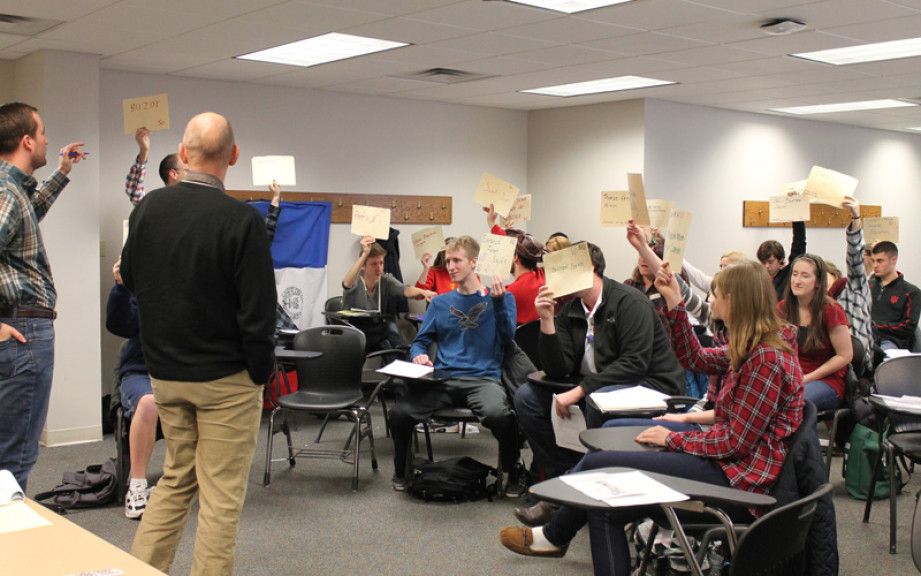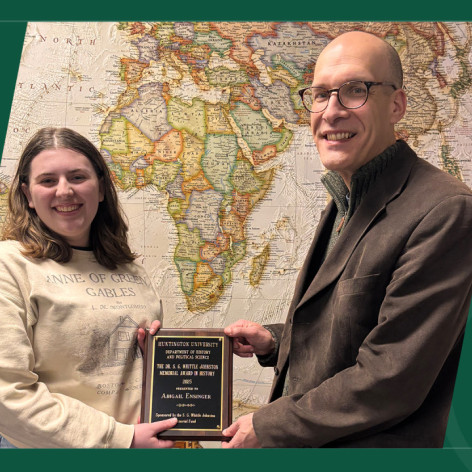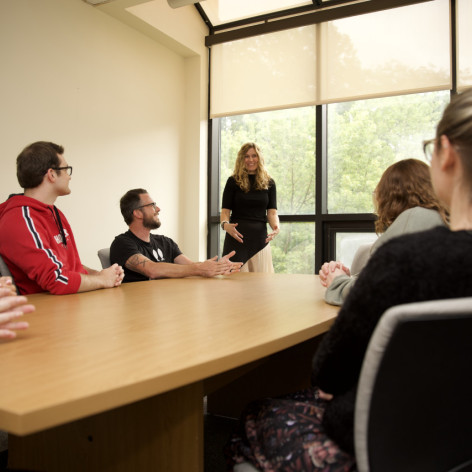Vive la Revolution!

The French Revolution would not be complete without arguments, debates or opposing delegate factions, and neither would be Huntington University’s “You Say You Want a Revolution?: Role Playing the French Revolution” J-term class.
The class is taught by Dr. Dwight Brautigam, professor of history. It consists of a role playing game from the Reacting To The Past (RTTP) curriculum. In RTTP classes, the students take control of the class activities and the instructor adopts the role of observer, clarifying rules and refereeing as necessary. That means the class combines two attributes that are crucial to good history classes—active learning and digging into primary sources.
“I discovered this curriculum/methodology during my fall 2014 sabbatical, and after receiving a Bright Star grant from HU last spring, I was able to attend a training institute last June at Barnard College (part of Columbia University) in New York City where I learned more about the Reacting To The Past curriculum,” Brautigam said. “I also used some RTTP games in my fall classes.”
In Brautigam’s class, students are members or observers of the French National Assembly in 1791, two years into the French Revolution. Working in delegate factions, as undecided delegates or as rambunctious Parisians observing the proceedings, students try to shape Revolutionary France’s government through speeches, debates, newspapers and public demonstrations that may turn violent (not with real violence, of course).
Brautigam has noticed that students end up learning much more from role playing the material than from sitting through a traditional class lecture. He noted that he has seen amazing results and higher student engagement.
“The French Revolution has so many complex parts that would have been hard to learn through a traditional class structure,” said Bradey Wright, a junior history and pre-law major from Fort Wayne, Indiana, who is participating in the class. “By role playing and becoming completely immersed in the game, I am learning so much more than I could have ever hoped to know about the French Revolution. I hope to take away the skills that the game has helped me learn like negotiating, debating and the work that is needed to get legislation through on a government level. The class is a lot more fun than sitting through lectures on the topic would be.”
Trying to determine a country’s future and defining what it means to be “French” is difficult and often tumultuous work, and this game and class captures the uncertainties and rivalries that characterized the French Revolution.
“I want students to understand how chaotic revolutions are, and how people’s choices at the time of the French Revolution profoundly influenced how that revolution turned out,” Brautigam said. “They’re learning that the course of history is not inevitable.”



